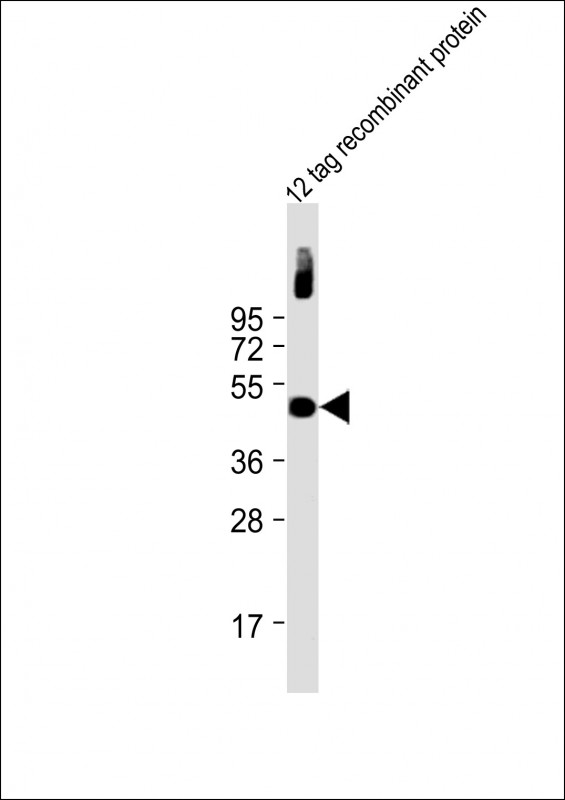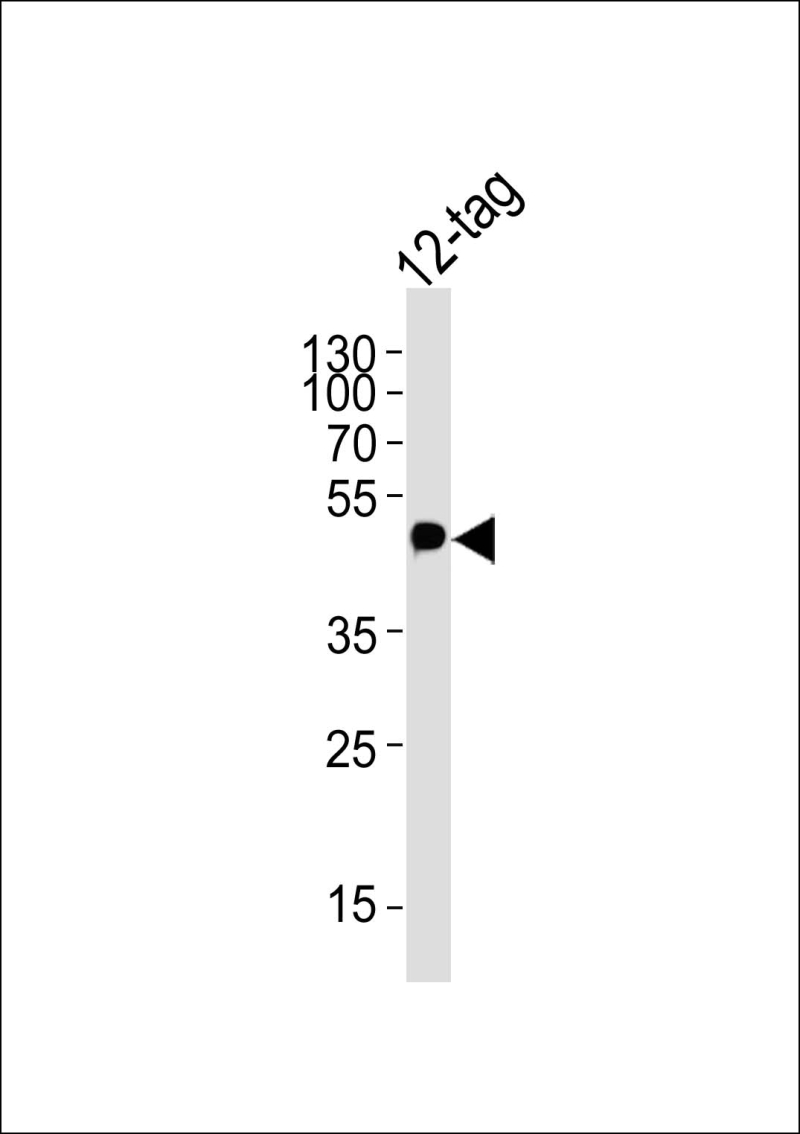

| WB | 1/2000 | Human,Mouse,Rat |
| IF | 咨询技术 | Human,Mouse,Rat |
| IHC | 咨询技术 | Human,Mouse,Rat |
| ICC | 技术咨询 | Human,Mouse,Rat |
| FCM | 咨询技术 | Human,Mouse,Rat |
| Elisa | 咨询技术 | Human,Mouse,Rat |
| Aliases | Tag from c-Myc protein |
| Host/Isotype | Mouse IgG1 |
| Antibody Type | Primary antibody |
| Storage | Store at 4°C short term. Aliquot and store at -20°C long term. Avoid freeze/thaw cycles. |
| Immunogen | KLH conjugated synthetic peptide encoding c-Myc tag (AEEQKLISEEDLLRKRREQLKHKLE) was used as antigen. |
| Formulation | Purified antibody in TBS with 0.05% sodium azide. |
+ +
以下是关于 Myc Tag 抗体的3篇代表性文献的简要总结:
1. **文献名称**:*Isolation of monoclonal antibodies specific for human c-myc proto-oncogene product*
**作者**:Evan, G.I., et al.
**摘要**:该研究首次报道了针对人类c-Myc蛋白的单克隆抗体(9E10克隆),验证了其特异性识别 Myc Tag 表位(EQKLISEEDL)的能力,成为后续 Myc 标签系统的开发基础。
2. **文献名称**:*Comparison of anti-Myc tag antibodies in different experimental systems*
**作者**:Berglund, L., et al.
**摘要**:比较了多种 Myc Tag 抗体(包括兔、小鼠来源)在Western blot、免疫荧光等实验中的灵敏度和特异性,发现不同宿主来源的抗体在交叉反应性上存在差异,需根据实验体系优化选择。
3. **文献名称**:*Epitope tagging of heterologous proteins in mammalian cells*
**作者**:Petersen, J., et al.
**摘要**:探讨了 Myc Tag 在哺乳动物细胞中外源蛋白标记中的应用,验证了其低背景干扰特性,并提供了抗体结合表位的优化策略,以提升检测效率。
*注:以上文献为示例性质,具体引用时请核实原文信息。如需最新研究,可检索PubMed等数据库并筛选高引用或近期论文。*
The Myc tag is a small peptide epitope (derived from the c-myc oncogene protein) widely employed as a molecular tool in biomedical research. First described in the 1980s, this 10-amino acid sequence (EQKLISEEDL) was engineered to enable specific detection and purification of recombinant proteins without interfering with their native structure or function. Myc tag antibodies were subsequently developed as essential reagents for identifying tagged proteins in various experimental setups. These antibodies exhibit high specificity for the Myc epitope, making them invaluable in techniques like Western blotting, immunoprecipitation, immunofluorescence, and protein localization studies.
Typically produced in mice or rabbits as monoclonal or polyclonal variants, Myc tag antibodies revolutionized protein research by providing a standardized detection method across different laboratories. Their commercial availability and compatibility with other epitope tags (e.g., HA, FLAG) enable multiplex experiments. While exceptionally reliable, researchers must validate their use in systems expressing endogenous c-myc proteins to avoid cross-reactivity. Today, Myc tag antibodies remain a cornerstone in molecular biology, particularly for tracking recombinant protein expression, studying protein-protein interactions, and characterizing transgenic organisms.
×